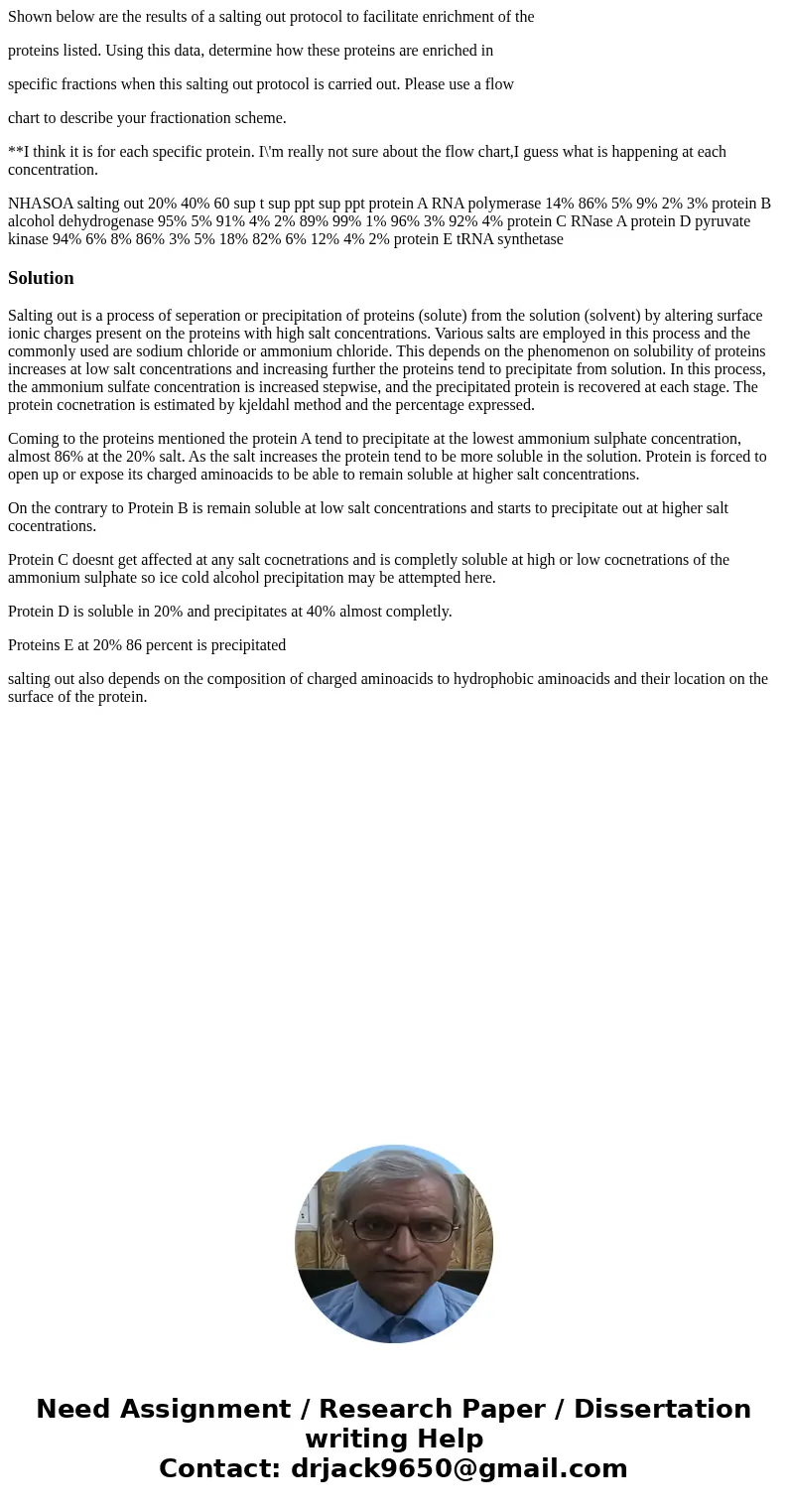Shown below are the results of a salting out protocol to fac
Shown below are the results of a salting out protocol to facilitate enrichment of the
proteins listed. Using this data, determine how these proteins are enriched in
specific fractions when this salting out protocol is carried out. Please use a flow
chart to describe your fractionation scheme.
**I think it is for each specific protein. I\'m really not sure about the flow chart,I guess what is happening at each concentration.
NHASOA salting out 20% 40% 60 sup t sup ppt sup ppt protein A RNA polymerase 14% 86% 5% 9% 2% 3% protein B alcohol dehydrogenase 95% 5% 91% 4% 2% 89% 99% 1% 96% 3% 92% 4% protein C RNase A protein D pyruvate kinase 94% 6% 8% 86% 3% 5% 18% 82% 6% 12% 4% 2% protein E tRNA synthetaseSolution
Salting out is a process of seperation or precipitation of proteins (solute) from the solution (solvent) by altering surface ionic charges present on the proteins with high salt concentrations. Various salts are employed in this process and the commonly used are sodium chloride or ammonium chloride. This depends on the phenomenon on solubility of proteins increases at low salt concentrations and increasing further the proteins tend to precipitate from solution. In this process, the ammonium sulfate concentration is increased stepwise, and the precipitated protein is recovered at each stage. The protein cocnetration is estimated by kjeldahl method and the percentage expressed.
Coming to the proteins mentioned the protein A tend to precipitate at the lowest ammonium sulphate concentration, almost 86% at the 20% salt. As the salt increases the protein tend to be more soluble in the solution. Protein is forced to open up or expose its charged aminoacids to be able to remain soluble at higher salt concentrations.
On the contrary to Protein B is remain soluble at low salt concentrations and starts to precipitate out at higher salt cocentrations.
Protein C doesnt get affected at any salt cocnetrations and is completly soluble at high or low cocnetrations of the ammonium sulphate so ice cold alcohol precipitation may be attempted here.
Protein D is soluble in 20% and precipitates at 40% almost completly.
Proteins E at 20% 86 percent is precipitated
salting out also depends on the composition of charged aminoacids to hydrophobic aminoacids and their location on the surface of the protein.

 Homework Sourse
Homework Sourse